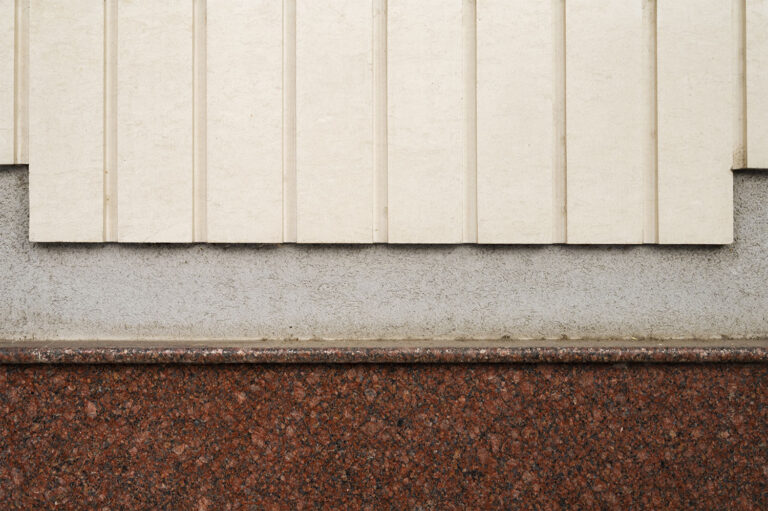Balcony Material for Your California Climate (and SB 326/SB 721)

Table of Contents
California property owners: when it comes to balconies, looks aren’t everything. Sure, you want that outdoor space to be a stunning extension of your home. But in the Golden State, where we experience everything from scorching sun to coastal fog, choosing the right balcony material isn’t just about aesthetics—it’s about durability, maintenance, and compliance with those pesky (but important!) safety laws like SB-326 and SB-721.
So, grab a cup of coffee and let’s dive into the pros and cons of different balcony materials. By the end of this post, you’ll be armed with the knowledge you need to make an informed decision that’ll keep your balconies safe, beautiful, and hassle-free for years to come.
Wood: The Classic Charm
Ah, wood. It’s that timeless material that evokes warmth and blends seamlessly with nature. But here’s the thing: wood needs love in California’s climate.
- Pros:
- Aesthetically pleasing: It adds natural warmth and beauty to your property.
- Versatile: It can be stained, painted, or left natural for various looks.
- Affordable: It’s generally less expensive than other materials.
- Cons:
- Requires regular maintenance: Without proper care, wood is prone to rot, decay, and insect damage in California’s diverse climate.
- Susceptible to fire: This is a major concern in fire-prone areas of the state.
- Can warp or crack: Extreme temperature fluctuations can cause wood to expand and contract, leading to warping or cracking.
Contact DrBalcony for a professional inspection!
Ensure the safety of your balcony and living space with DrBalcony - We're a Tech Engineering firm that specializes in California SB326 & SB721 balcony inspections. Over 300+ completed projects in California.
Request A Free EstimateClick To CallConcrete: The Workhorse of Balconies
Concrete is the unsung hero of balcony materials. It’s tough, durable, and low-maintenance, making it a great choice for busy property owners or those in harsher environments.
- Pros:
- Extremely durable: Concrete can withstand heavy use and harsh weather conditions.
- Fire-resistant: A major safety advantage in California’s fire-prone regions.
- Low maintenance: Requires minimal upkeep compared to wood.
- Cons:
- Expensive: It’s generally more expensive than wood, both in materials and installation.
- Weight: Concrete is heavy, which can be a factor in older buildings or those with structural limitations.
- Limited design flexibility: It’s not as versatile as wood when it comes to customization.
Steel: The Modern Marvel
If you’re looking for a sleek, modern look, steel is a fantastic option. It’s incredibly strong, durable, and resistant to fire and insects.
- Pros:
- Strength and durability: Steel can withstand heavy loads and extreme weather.
- Minimal maintenance: It doesn’t require the same level of upkeep as wood.
- Design flexibility: Available in various finishes and configurations, allowing for unique designs.
- Cons:
- Cost: It’s typically the most expensive option.
- Susceptible to corrosion: Coastal environments with salty air can accelerate rust and corrosion.
Composite Decking: The Best of Both Worlds?
Composite decking offers the look of wood with the durability of plastic. It’s a popular choice for those seeking a low-maintenance, weather-resistant option.
- Pros:
- Durability: Resistant to rot, insects, and fading.
- Low maintenance: Requires less upkeep than wood.
- Variety of styles: Mimics the look of various wood species.
- Cons:
- Can be expensive: Initial cost is higher than wood.
- Heat absorption: Can get hot underfoot in direct sunlight.
Making the Right Choice: Factors to Consider
- Property Type: Are you a homeowner, property manager, or HOA board member? Each role may have different priorities and budget constraints.
- Climate: Consider your local climate. Coastal properties may need to prioritize corrosion resistance, while inland locations might emphasize fire safety.
- Budget: Factor in both the initial cost of materials and the long-term maintenance costs.
- Aesthetics: Choose a material that complements your building’s style and enhances its curb appeal.
Not sure which material is right for your California balconies? DrBalcony can help! Our experienced team can assess your needs, recommend the best materials for your climate and budget, and ensure your balconies meet SB-326/SB-721 compliance standards.
Contact us today for a free consultation and let us help you choose the perfect balcony material for your property.
Contact DrBalcony for a professional inspection!
Ensure the safety of your balcony and living space with DrBalcony - We're a Tech Engineering firm that specializes in California SB326 & SB721 balcony inspections. Over 300+ completed projects in California.
Request A Free EstimateClick To CallFAQ Section: Top Questions & Answers
My property is well-maintained. Do I really need SB-326/SB-721 inspections?
YES! Even with excellent maintenance, hidden issues can develop due to construction errors, material flaws, or severe weather exposure. Inspections are about ensuring those don’t turn into major problems.
Our balconies were inspected a few years ago – isn't that enough?
Unfortunately, no. California laws mandate inspections on a set schedule, often every 6 years. Deterioration can happen quickly, making regular assessments essential.
Can I use my regular handyman for the balcony inspection?
It’s not recommended. Unless they hold specific licenses (architect, structural engineer, etc.) their inspection won’t be considered valid for SB-326/SB-721 compliance.
What if the inspection uncovers major issues?
First, don’t panic! Early detection often means less extensive (and expensive) repairs are needed. Work with your inspector to prioritize fixes, and explore if they offer repair services for a streamlined solution.
I'm worried about the cost of inspections. Are there any resources to help?
Start by getting detailed quotes from multiple companies. Factor in that proactive inspections help you avoid even bigger costs down the line due to neglected problems. Some property management associations offer guidance on budgeting for balcony compliance.
